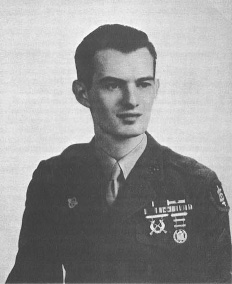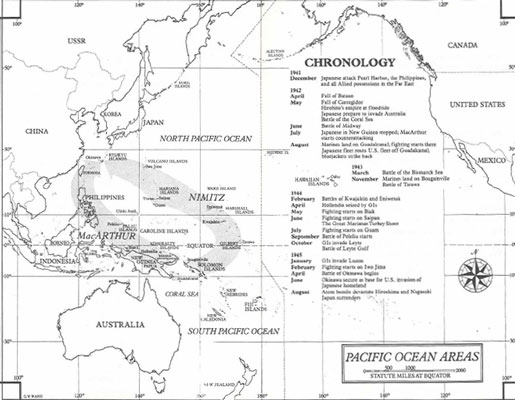Goodbye, Darkness


COPYRIGHT © 1979, 1980 BY WILLIAM MANCHESTER
ALL RIGHTS RESERVED. EXCEPT AS PERMITTED UNDER THE U.S. COPYRIGHT ACT OF 1976, NO PART OF THIS PUBLICATION MAY BE REPRODUCED, DISTRIBUTED, OR TRANSMITTED IN ANY FORM OR BY ANY MEANS, OR STORED IN A DATABASE OR RETRIEVAL SYSTEM, WITHOUT THE PRIOR WRITTEN PERMISSION OF THE PUBLISHER.
BACK BAY BOOKS / LITTLE, BROWN AND COMPANY
HACHETTE BOOK GROUP
237
PARK AVENUE, NEW YORK, NY
10017
VISIT OUR WEB SITE AT
WWW.HACHETTEBOOKGROUP.COM
First eBook Edition: April 2002
Lines from “We'll Build a Bungalow” by Betty Bryant Mayhams and Norris the Troubadour, copyright Robert Mellin Music Publishing Corp. Used by permission.
Lines from “On the Sunny Side of the Street” by Dorothy Fields and Jimmy McHugh, copyright 1930 by Shapiro, Bernstein & Co., Inc., copyright renewed 1957 and assigned to Shapiro, Bernstein&Co., Inc. Used by permission.
Photographs on pages 2, 8, 14, 158, 214, 348, and 392, U.S. Marine Corps photos; page 118, Mark Kauffman, copyright 1951 by Time Inc.; page 36, U.S. Navy photo; page 54, United Press International; page 76, J. R. Eyerman, © 1980 by Time Inc.; page 190, Bruce Adams; page 254, 7
th
AAF; page 304, U.S. Army photo; page 323, Robin Moyer; page 394, © 1980 by George Silk. All other photographs are courtesy of William Manchester.
ISBN: 978-0-316-05463-8
Route March
PREAMBLE: Blood That Never Dried
PROLOGUE: The Wind-Grieved Ghost
ABLE: From the Argonne to Pearl Harbor
CHARLIE: Ghastly Remnants of Its Last Gaunt Garrison
ITEM: I Will Lay Me Down for to Bleed a While …
JIG: …Then I'll Rise and Fight with You Again
Acclaim for William Manchester's
GOODBYE, DARKNESS
A MEMOIR OF THE PACIFIC WAR
“Never have the fighting men been better caught in their talk, fear, pride, misery, pain, anguish. Never have the savagery, madness, ferocity, violence, guts, crud, gristle, and gore of war been better put down on paper. …
Goodbye, Darkness
belongs with the best war memoirs ever written.”
—
Los Angeles Times
“A storyteller of uncommon gifts and imagination. … The reviewer is hard put to describe this intelligent, beautifully crafted but complicated work in a nutshell.”
— Clay Blair,
Chicago Tribune
“Unforgettable. … A deeply felt attempt to exorcise ghosts and reclaim the integrity of the spirit. … A page-turner that is raunchy and moving by turns and very well written.”
—
Publishers Weekly
“A very moving account. … Manchester's war wasn't subtle. His memoir is powerful, painful.”
—
People
“Masterful.”
—
Seattle Times
“Weaving recollection with research, Manchester lets the war unfold like memory itself, in concentric circles rising from the subjective sensations to historic events. The sensations dominate, especially those of terror, loss, revulsion, remorse, and, beneath them all, love, the unchosen love shared by fighting men amid the horror and sacrifice of honorable war.”
—J.S. Allen,
Saturday Review
“An extremely personal memoir of World War II that will appeal to persons with traditional values and with which many veterans will be able to identify. It should also be interesting to young people seeking to understand the patriotic fervor that once was not only accepted but expected from Americans of all ages. … Manchester neither preaches nor apologizes as he presents a graphic picture of the war and of the young men who fought and died.”
— James Simon,
Library Journal
“A compelling account of the war in the Pacific: its strategy, geography, tactics, fighting, its leaders. … No one has looked it over from so many merging or intersecting perspectives. … The campaigns for Guadalcanal, Tarawa, Saipan and Tinian, Guam, Peleliu, Iwo Jima, and Okinawa — gory, in no way understated, movingly rendered and authentic.”
—
Washington Post Book World
“This is the most moving memoir of combat in World War II that I have read. Manchester has done for that greatest of conflicts what the English poet Siegfried Sassoon did for the First World War; brought home the misery and horror of combat and what it is like to fight and be wounded and die in hell and confusion and blood of modern battle. It is a testimony to the fortitude of man. This is quite different from the other books that Manchester has written. It is very personal: a quest to find what he has lost as a youth during the fighting in the Pacific and to come to terms with that young man who slogged it out as a foot soldier in the Marines. It is a gripping, haunting book.”
— William L. Shirer
Books by William Manchester
BIOGRAPHY
American Caesar: Douglas MacArthur, 1880–1964
Disturber of the Peace: The Life of H. L. Mencken
The Last Lion: Winston Spencer Churchill; Visions of Glory:
1874–1932
The Last Lion: Winston Spencer Churchill; Alone: 1932–1940
One Brief Shining Moment: Remembering Kennedy
Portrait of a President: John F. Kennedy in Profile
A Rockefeller Family Portrait: From John D. to Nelson
HISTORY
The Arms of Krupp, 1587–1968
The Death of a President: November 20-November 25, 1963
The Glory and the Dream: A Narrative History of America, 1932–1972
A World Lit Only by Fire. The Medieval Mind and the
Renaissance: Portrait of An Age
ESSAYS
Controversy: And Other Essays in Journalism, 1950–1975
In Our Time: The World as Seen by Magnum Photographers
FICTION
The City of Anger
The Long Gainer
Shadow of the Monsoon
DIVERSION
Beard the Lion
MEMOIRS
Goodbye, Darkness: A Memoir of the Pacific War

The author in 1945
To Robert E. Manchester Brother and Brother Marine

Your old men shall dream dreams,
your young men shall see visions.
— J
oel
2:28
War, which was cruel and glorious,
Has become cruel and sordid.
— W
inston
C
hurchill
But we … shall be remembered:
We few, we happy few, we band of brothers;
For he to-day that sheds his blood with me
Shall be my brother; be he ne'er so vile,
This day shall gentle his condition.
—
Henry V,
Act IV, Scene iii
| The author, 1945 | frontispiece |
| Lance Corporal William Manchester, Sr. | 17 |
| Malinta Tunnel, Corregidor | 66 |
| Red Beach, Guadalcanal | 172 |
| The Ilu, Guadalcanal | 185 |
| Bloody Ridge, Guadalcanal | 190 |
| Sergeant Major Vouza | 204 |
| Wading ashore at Tarawa | 226 |
| The pier at Tarawa | 226 |
| Enemy guns at Tarawa | 227 |
| Suicide Cliff, Saipan | 272 |
| Banzai Cliff, Saipan | 272 |
| Japanese tank, Guam | 299 |
| Cave with gun emplacement, Guam | 299 |
| Bloody Nose Ridge, Peleliu | 312 |
| American tank, Peleliu | 319 |
| Japanese gun, Peleliu | 321 |
| American monument, Peleliu | 323 |
| Japanese monument, Peleliu | 323 |
| Where MacArthur came ashore, Leyte | 330 |
| Filipino monument to MacArthur, Leyte | 330 |
| Makati cemetery, Manila | 336 |
| Iwo Jima | 345 |
| The view from Mount Suribachi, Iwo Jima | 345 |
| Sugar Loaf Hill, Okinawa, then and now | 392 |
| The author, 1979 | 394 |
| Maps | |
| Pearl Harbor | 42 |
| Bataan and Corregidor | 59 |
| New Guinea | 82 |
| Guadalcanal | 164 |
| Tarawa Atoll | 216 |
| Saipan | 264 |
| Guam | 285 |
| Peleliu | 308 |
| Leyte Gulf | 325 |
| Luzon | 332 |
| Iwo Jima | 338 |
| Okinawa | 351 |

Blood That Never Dried
O
ur boeing
747
has been fleeing westward from darkened
California, racing across the Pacific toward the sun, the incandescent eye of God, but slowly, three hours later than West Coast time, twilight gathers outside, veil upon lilac veil. This is what the French call
l'heure bleue
. Aquamarine becomes turquoise; turquoise, lavendar; lavendar, violet; violet, magenta; magenta, mulberry. Seen through my cocktail glass, the light fades as it deepens; it becomes opalescent, crepuscular. In the last waning moments of the day I can still feel the failing sunlight on my cheek, taste it in my martini. The plane rises before a spindrift; the darkening sky, broken by clouds like combers, boils and foams overhead. Then the whole weight of evening falls upon me. Old memories, phantoms repressed for more than a third of a century, begin to stir. I can almost hear the rhythm of surf on distant snow-white beaches. I have another drink, and then I learn, for the hundredth time, that you can't drown your troubles, not the real ones, because if they are real they can swim. One of my worst recollections, one I had buried in my deepest memory bank long ago, comes back with a clarity so blinding that I surge forward against the seat belt, appalled by it, filled with remorse and shame.
